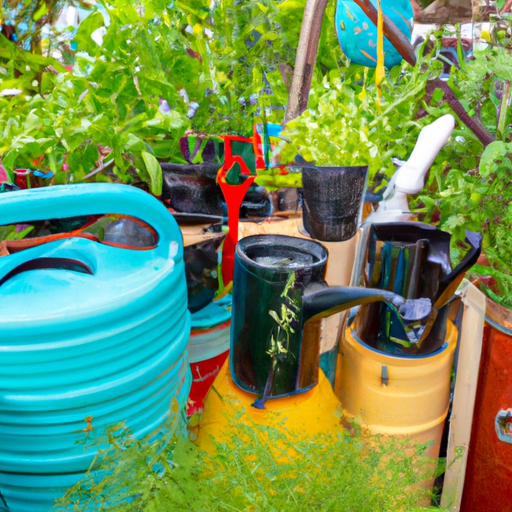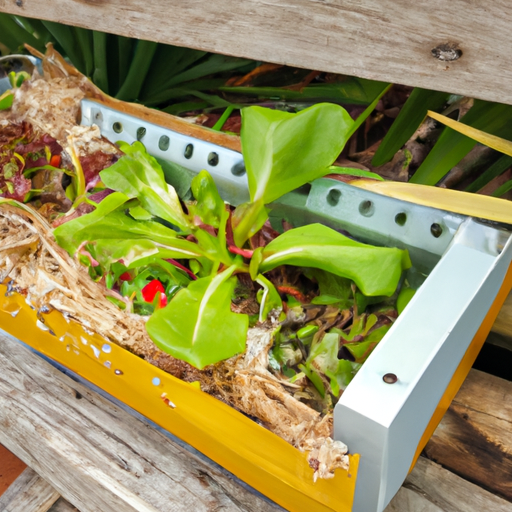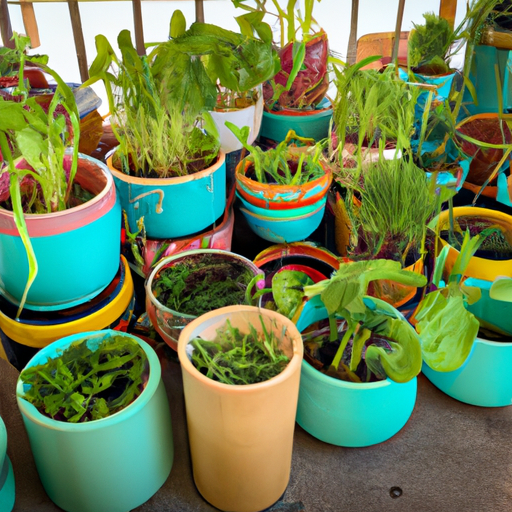Exploring Creative Recycled Containers for Organic Gardening
Introduction:
Organic gardening is a sustainable and eco-friendly practice that promotes the cultivation of plants without the use of synthetic fertilizers or harmful pesticides. It ensures the production of healthy and natural food while also taking care of the environment. One aspect of organic gardening that has gained popularity in recent years is using recycled containers. By repurposing old items, we can create unique and creative containers for our plants, adding an artistic touch to our gardens. This article aims to explore various creative recycled containers for organic gardening, highlighting their benefits and offering ideas for implementation.
Benefits of Using Recycled Containers in Organic Gardening:
1. Environmental Sustainability:
Using recycled containers reduces waste and lowers the need for new materials. By repurposing items that might otherwise end up in landfills, we contribute to environmental sustainability. It’s a small but significant step towards reducing our carbon footprint and promoting a circular economy.

2. Cost-effectiveness:
Traditional pots and planters can be expensive, especially if you have a large garden or multiple plants. By using recycled containers, you can save money while still providing suitable growing conditions for your plants. With some creativity, you can transform everyday objects into beautiful planters without breaking the bank.
3. Unique Aesthetic Appeal:
Recycled containers offer endless possibilities when it comes to aesthetics. Each item has its own history and character, which adds charm to your garden space. From vintage teapots to old boots, there is no limit to the creativity that can be expressed through repurposed objects.
Creative Recycled Containers Ideas:
1. Tin Cans:
Tin cans are versatile and readily available containers that can be easily repurposed for organic gardening. After cleaning them thoroughly, remove the labels and punch holes at the bottom for drainage. Paint them in vibrant colors or wrap them with twine to add visual interest.
2. Wooden Crates:
Old wooden crates have a rustic charm that fits perfectly with an organic garden. Line the bottom with landscape fabric or burlap to hold the soil, and then plant your favorite herbs or flowers. These crates can be stacked to create vertical gardens, maximizing space in small areas.

3. Wine Barrels:
Wine barrels make excellent planters for larger plants or small trees. Cut a hole in the top and fill it with rich soil and compost. Their natural wooden texture adds elegance to any garden. Additionally, these barrels can be repurposed as rainwater collectors, further promoting sustainability.
4. Rubber Tires:
Old tires are often discarded in large quantities and pose a significant environmental challenge due to their slow decomposition process. However, they can be transformed into unique planters by painting them with weather-resistant paint and filling them with soil. Stack multiple tires to create visually appealing flower beds or use single tires for individual plants.
5. Bathtubs:
Repurposing old bathtubs as planters is an innovative way to add a vintage touch to your garden while creating ample space for planting vegetables or flowers. Ensure proper drainage by drilling holes at the bottom and place the tub in a sunny spot to create a striking focal point.
Conclusion:
Organic gardening promotes sustainable practices while providing healthy food options for ourselves and our families. Incorporating creative recycled containers into our gardening efforts adds a unique touch while reducing waste and saving money. By exploring various ideas like tin cans, wooden crates, wine barrels, rubber tires, and bathtubs, we can unleash our creativity while contributing to environmental sustainability. Give new life to old objects by repurposing them as planters – not only will your garden thrive but so will your eco-conscious spirit!














